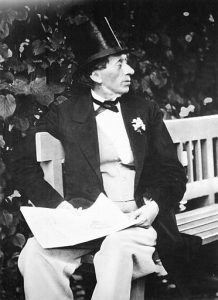Keeping wisdom and lessons on how to live one’s life to the fullest and most effective and productive used to be very hard before different nations became literate. Because of this, it was not enough to list a rule, defend it with ‘because I said so’, and count on it being remembered. Folklore has many different categories and one of them is folktales. Why are they important?
Folktales

Folktales are a category of folklore that involves a short story with a rule or moral at the end. Sometimes, the point of the story is to regale the listener with how wise and witty their ancestors were. Other times it is used to point out to what used to be considered general truth at the time of the story’s creation.
A subcategory of folktales is the so-called fables, which are short stories with morals that involve animals.
Tradition and Culture
Keeping stories are important in the sense of preserving one’s cultural heritage. Folktales of old describe a nation’s mentality and beliefs when their social structure and government type were different. They also tell people to remember where they come from, not for the sake of impeding their progress, but to learn from the past.
Wisdom

As stated in the introduction, folktales hold a lot of wisdom. Formal education was something else and it was not available to commoners. Folktales were there to instill morals and thinking skills. To memorize the rules in a certain society, people would create tales where the reason behind the rules, official or not, was explained. For example, instead of telling someone not to betray a friend’s trust, not to lie, and not to kill, people would tell stories of honorable heroes and vile villains, where the villains would be punished for their transgressions. Sometimes, an ill fate would befall a character for being stupid or lazy.
Decision Making
An important aspect of adopting wisdom from folktales is decision making. From a young age, children are taught that their actions have consequences and that making a wise decision would shift the outcome of a situation in their favor.
Fables
Fables have a life of their own, separate from other folk tales. As they are usually about animals, it is easy to focus on the personality traits of individuals, rather than to make stereotypes about groups of people.

As Hans Christian Andersen said in his story This Fable Is Intended for You, translated by Jean Hersholt: “Wise men of ancient times ingeniously discovered how to tell people the truth without being blunt to their faces. You see, they held a magic mirror before the people, in which all sorts of animals and various wondrous things appeared, producing amusing as well as instructive pictures. They called these fables, and whatever wise or foolish deeds the animals performed, the people were to imagine themselves in their places and thereby think, “This fable is intended for you!” In this way, no one’s feelings were hurt.“

